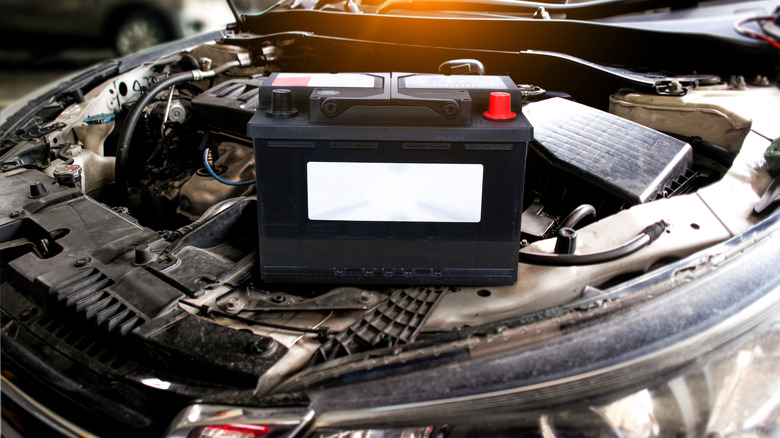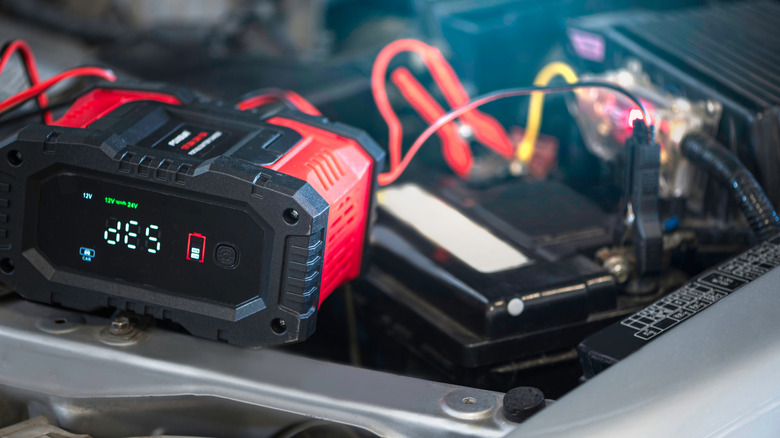How Fast Will Highway Driving Charge Your Car Battery?
Dealing with a car battery that's struggling to hold a charge is beyond frustrating and can be a sign it's time to get a replacement. But if a new battery isn't in your budget, you might be stuck trying to figure out a short-term solution to keep your car moving. It's a common belief that just driving around can help recharge your battery, but how true is that? More importantly, how long do you need to be on the road for it to actually make a difference?
If you're counting on driving as an easy fix, you'll be on the road anywhere from four to eight hours. That's factoring in highway speeds around 55 to 65 miles per hour. It's often been said that 30 minutes is the magic number, which may have been true years ago. But the fact is that the alternator is doing the work to recharge your battery, not the motion of the car. Plus, the alternator is also doing other things as you drive too, like running your car's electrical systems. So the faster and longer you drive, the more the alternator can help.
But no matter how fast or far you go, your battery won't hit 100% charge. Also, if your battery is too far gone, no amount of driving is really going to help all that much. At some point, you'll need to address what's happening under the hood.
There are ways to recharge your car's battery
Highway driving can be an easy way to recharge your car battery, but you'll need to be on the road at least four to eight hours and even then, you won't get a full charge. So if you're not quite ready to put the cash down for a new battery, what else can you do to keep moving? Does anything help besides driving?
Idling, or sitting still while the engine's running, allows the alternator to generate some power, thus recharging your battery. But your car's motor is turning at low RPMs while idling, which means the alternator isn't spinning fast enough to produce an adequate charge. Revving the engine while you're idling can help, but if the battery is already low or drained, idling won't help much. You could invest in a battery charger, which is easy to use and works through a regular outlet. Depending on the strength of the charger, you could be back on the road in a matter of hours.
But it's important to remember that you shouldn't have to constantly charge your battery. Your car should perform without any effort on your part besides turning the key. The best course of action is to take your car to a mechanic, as you could have a bad alternator or simply a dead battery. New parts can be expensive, of course, but peace of mind is priceless.

